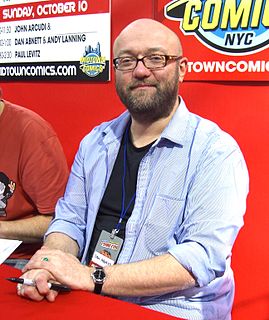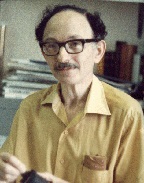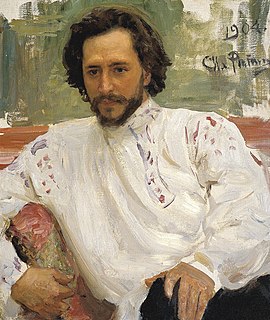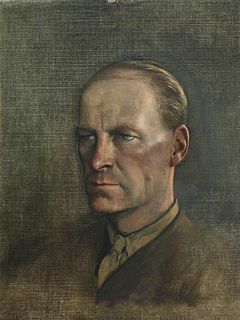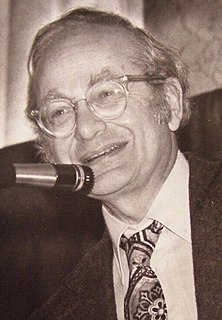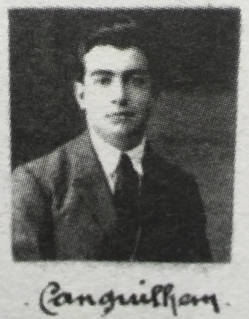A Quote by Gilbert K. Chesterton
Instead of the machine being a giant to which the man is the pygmy, we must at last reverse the proportions until man is a giant to whom the machine is the toy.
Related Quotes
Man is a machine, but a very peculiar machine. He is a machine which, in right circumstances, and with right treatment, can know that he is a machine, and having fully realized this, he may find the ways to cease to be a machine. First of all, what man must know is that he is not one; he is many. He has not one permanent and unchangeable “I” or Ego. He is always different. One moment he is one, another moment he is another, the third moment he is a third, and so on, almost without end.
Man is a machine which reacts blindly to external forces and, this being so, he has no will, and very little control of himself, if any at all. What we have to study, therefore, is not psychology-for that applies only to a developed man-but mechanics. Man is not only a machine but a machine which works very much below the standard it would be capable of maintaining if it were working properly.
Maybe belief is the biggest lie. In ages past, the earliest philosophers tried to explain the stars in the sky and the world around them. One of them conceived of the notion that the universe was mounted on giant crystal spheres controlled by a giant machine, which explained the movements of the heavens. He was laughed at and told that such a machine would be so huge and noisy that everyone would hear it. He simply replied that we are born with that noise all around us, and that we are so used to hearing it that we cannot hear it at all.
Let an ultraintelligent machine be defined as a machine that can far surpass all the intellectual activities of any man however clever. Since the design of machines is one of these intellectual activities, an ultraintelligent machine could design even better machines; there would then unquestionably be an 'intelligence explosion,' and the intelligence of man would be left far behind. Thus the first ultraintelligent machine is the last invention that man need ever make.
One of man's important mistakes, one which must be remembered, is his illusion in regard to his I. Man such as we know him, the 'man-machine,' the man who cannot 'do,' and with whom and through whom everything 'happens,' cannot have a permanent and single I. His I changes as quickly as his thoughts, feelings and moods, and he makes a profound mistake in considering himself always one and the same person; in reality he is always a different person, not the one he was a moment ago.
The cycle of the machine is now coming to an end. Man has learned much in the hard discipline and the shrewd, unflinching grasp of practical possibilities that the machine has provided in the last three centuries: but we can no more continue to live in the world of the machine than we could live successfully on the barren surface of the moon.
... regard this body as a machine which, having been made by the hand of God, is incomparably better ordered than any machine that can be devised by man, and contains in itself movements more wonderful than those in any machine. ... it is for all practical purposes impossible for a machine to have enough organs to make it act in all the contingencies of life in the way in which our reason makes us act.
In truth, one cannot, it seems, oppose mechanism and finalism, one cannot oppose mechanism and anthropomorphism, for if the functioning of a machine is explained by relations of pure causality, the construction of a machine can be understood neither without purpose nor without man. A machine is made by man and for man, with a view toward certain ends to be obtained, in the form of effects to be produced.


